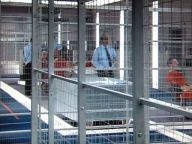Science and society
When The Experiment was first broadcast, several commentators observed that, although our study was fascinating and entertaining, they seriously doubted whether it had any serious scientific purpose or merit.
In a sense that is hardly surprising. The TV documentaries were never meant to provide a full scientific account – nor could they have. They were designed to engage and interest people in the ideas and issues we were addressing. As we put it, they were a “window on the science” rather than the science itself.
In the programs the focus was almost entirely on what happened in the study, rather than on our theoretical perspective, the rationale behind our interventions, and our predictions concerning their effects. There was no space for quantitative analysis of this data – no graphs, no tables, no tests of statistical significance. Not least, this was because these comprehensive analyses took us a long time to complete.
It took us even longer to write up formal scientific articles that brought together the various strands of theory and data. But it is in these articles that the full science of the study can be discovered. And the proof that is was good science is to be found precisely in the fact that we were able to publish our findings in a series of articles in many of the best psychology journals in the world – journals which use the traditional method of peer review by other academics and which only publish articles that meet stringent scientific criteria.
More scientific publications came out of our study than any previous social psychological field study
Resource
Read the scientific articles that we have published
